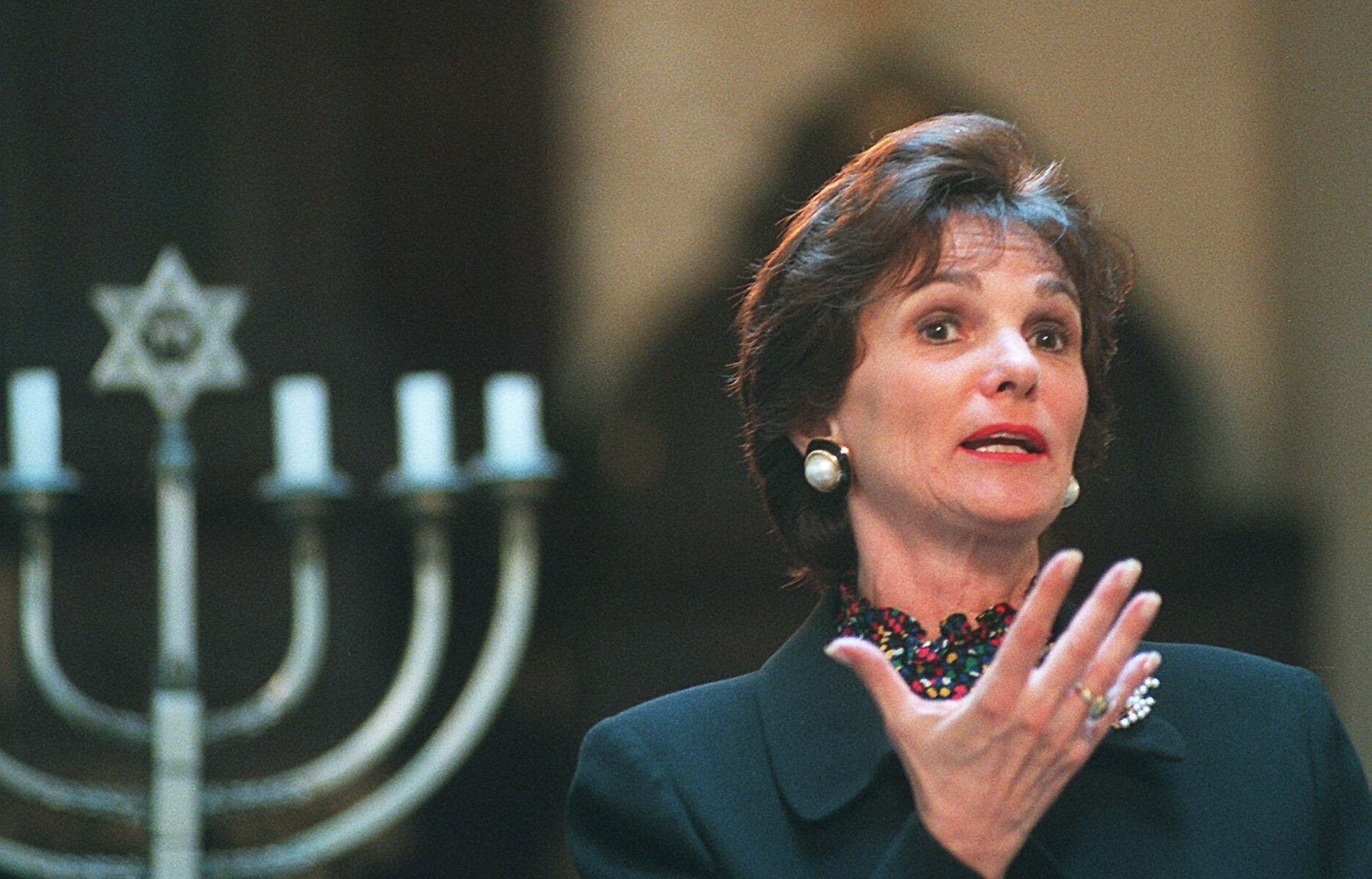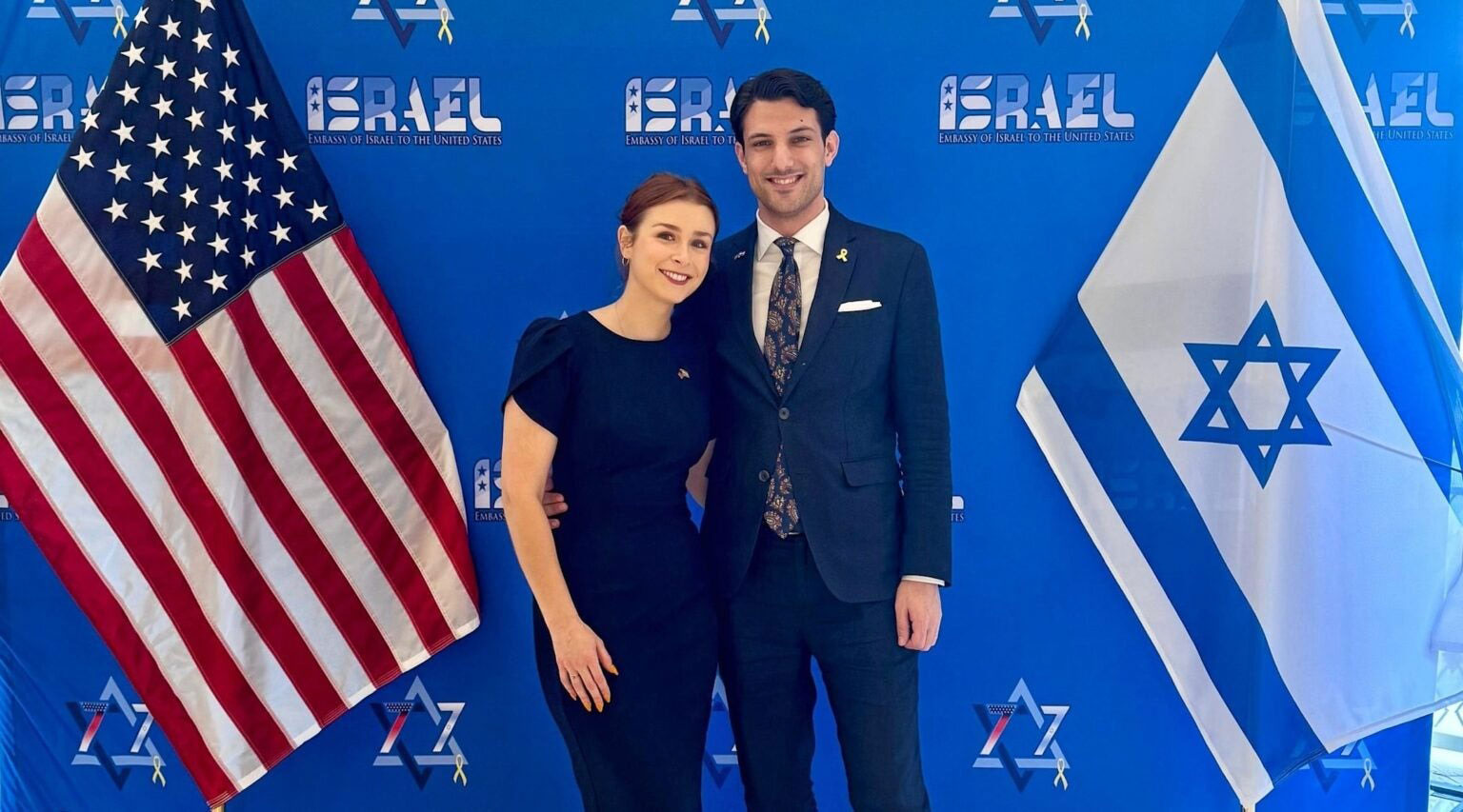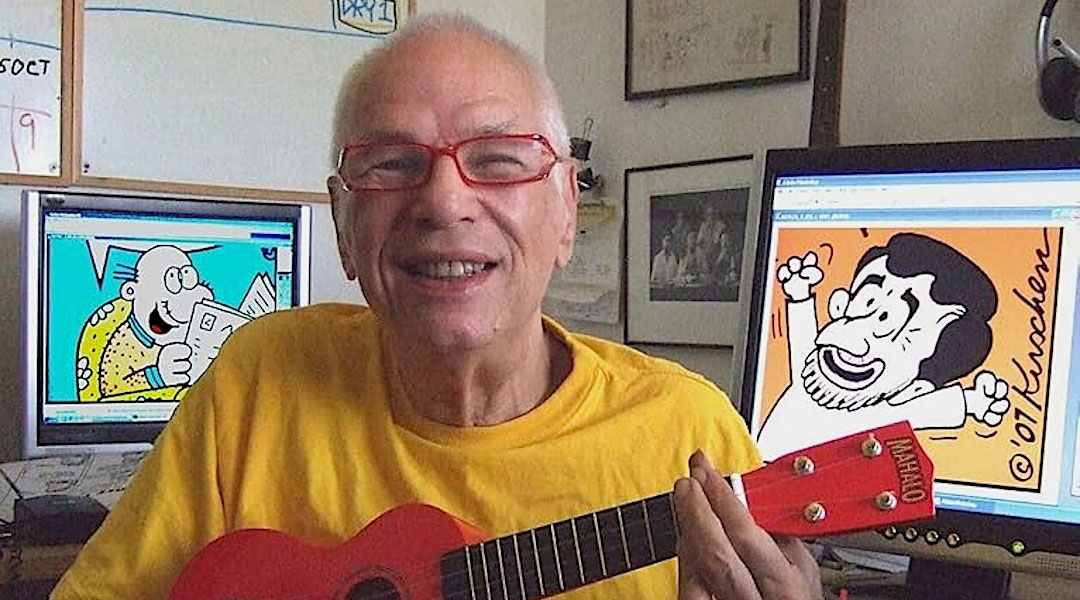Courtesy of JTA. Photo credit: Michael Robinson Chavez/The Boston Globe via Getty Images
Kitty Dukakis, taking her father Harry Ellis Dickson’s place, speaks to a crowd gathered at the Vilna Shul on Beacon Hill in Boston on Oct. 28, 1995, as part of the Combined Jewish Philanthropies commemoration of 16 historic Jewish buildings in Boston
(JTA) — With Michael Dukakis poised to clinch the Democratic nomination for president in 1988, Colorado’s Jewish newspaper turned its attention to his wife.
“What kind of role model would Kitty Dukakis be for our Jewish children?” the Intermountain Jewish News asked in an editorial that May.
The newspaper’s concern was that Kitty was Jewish and the Massachusetts governor was not — making their union an example of the intermarriage trend that was accelerating and igniting concern in Jewish communities across the Diaspora.
“We’re talking about a woman who married out, who reportedly does not even raise her children exclusively in the Jewish tradition, and who might well be projecting all this from the most visible arena in the world,” the editorial said.
In the end, Kitty Dukakis — who died Sunday at age 88 from complications of dementia — did not have a chance to set the tone from the White House. Michael Dukakis suffered a stinging defeat in November, winning just 10 states and Washington, D.C., in one of the most lopsided losses in U.S. history. Still, she made history as the first Jewish spouse of a U.S. presidential candidate, creating a template that Doug Emhoff expanded upon as the first Jewish second spouse over the last four years.
Kitty Dukakis was born Katherine Dickson in 1936 in the Boston suburb of Brookline, Massachusetts, in a neighborhood she described as almost exclusively Jewish. Her father, Harry Ellis Dickson, the son of Orthodox Jewish immigrants from Ukraine, became a conductor with the Boston Symphony Orchestra. But it was criticism from her mother Jane, who had been adopted by a German Jewish family and who Dukakis cited as the primary source of her Jewish education, that shaped her life, fueling years of depression and addictions, Dukakis said.
The addictions played a role in her public life, which she entered after marrying Michael, her second husband, in 1963, when he was already a state legislator in Massachusetts. Kitty Dukakis also remained a lifelong advocate for Holocaust memory, citing both seeing news footage of Nazi concentration camps after they were liberated and a visit to Yad Vashem during her trip to Israel. As part of the first presidential commission on the Holocaust, appointed by Jimmy Carter in 1978, she joined in urging the creation of a national Holocaust museum. Later, Bush appointed her to the United States Holocaust Memorial Council, which oversees the national museum and memorial in Washington, D.C.
Dukakis argued for taking expansive lessons from the Holocaust. “‘Never again’ isn’t meant just for Jews; it’s meant for all humankind,” she told Lerner in the 1988 interview. “We have to look beyond the narrow interpretation of the Holocaust that talks about the uniqueness of the Holocaust. We must broaden those lessons so that they embrace tragedies around the world and make our antennae more sensitive to understanding what’s happening when other people suffer.”
She advocated for Thai and Cambodian refugees, as well as for the homeless in the United States and persecuted Soviet Jews. Telling Lerner that she had visited Palestinian refugee camps in Gaza, she said, “I am convinced that no camp is a good camp.” She also said she had pushed Elie Wiesel, the prominent Holocaust survivor, to begin speaking out about other persecutions besides the Holocaust.
Newsweek reported that she had made notes for a speech about Cambodian refugees that put her identity front and center. “As a Jew,” she wrote, “I feel I have a real responsibility to help others who are suffering.”
Dukakis is survived by her husband; her three children, John, Andrea and Kara; and seven grandchildren.





